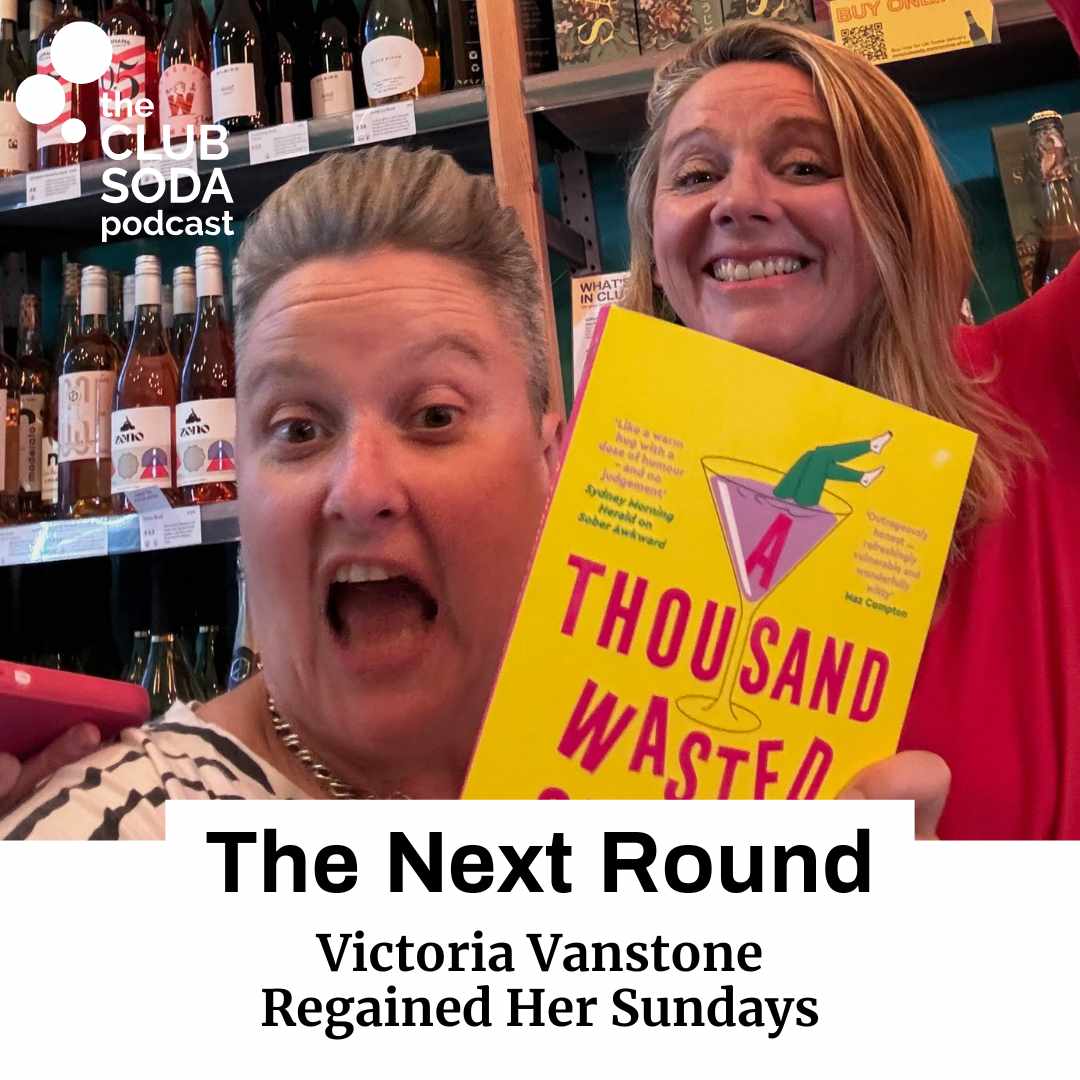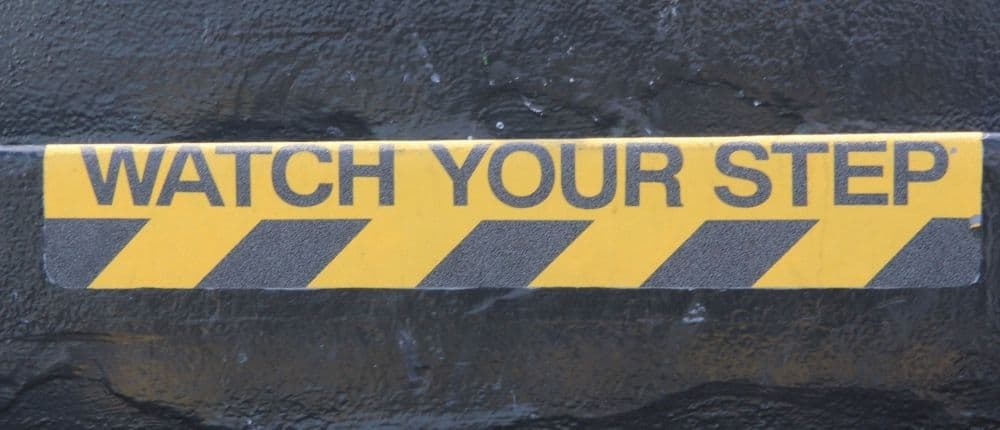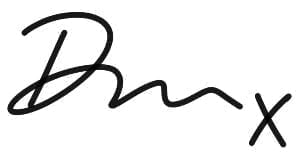
This website uses cookies to improve your experience. We'll assume you're ok with this, but you can opt-out if you wish. Read More
The Next Round: What happens after you change your drinking?


I understand my triggers: loneliness and sunshine. Yet how can I know this but still also get in the car, go to the wine aisle, buy the wine, drink it, then drink anything else in the house and pass out? It makes no sense at all. How can I be mindful about my triggers for drinking? Thomas

As you begin to change your drinking, it’s typical to question the irrationality of your behaviour. There will be things that happen that don’t make sense to you. Very often, that’s because you are noticing for the first time the addictive nature of your relationship with alcohol. It can be scary to face this reality. But it is possible to change.
Addiction is a very complex phenomenon and it has many different dimensions. But if your relationship with alcohol is compulsive (typically that when you start drinking, you find it very hard to stop), paying attention to your triggers is a useful strategy for change. By noticing the situations in which you are likely to start drinking, you increase the chance of avoiding unwanted drinking altogether.
In this article, we’ll explore what triggers are, how mindfulness can help you identify and deal with triggers, and the importance of paying attention to the little things.
“Trigger” is a word you hear a lot in recovery and sobriety groups, and in communities like Club Soda Together. But what is a trigger?
A trigger is an external event, circumstance or stimulus that can change your internal state. Although triggers start outside us, they are really psychological experiences, associations we have with places, times of day, people and things that set off the desire to have a drink. And they are often based on our habits, so we tend to encounter the same triggers repeatedly.
Drinking doesn’t just happen. Every drink – even a drink you consciously choose – has a trigger.
Without thinking too hard, most people can identify at least some triggers for drinking. You identified a couple in your question, Thomas – being on your own and the sun shining – but triggers are as varied as we are. A while back, we asked Club Soda members about their triggers for drinking. Some of the triggers they mentioned seemed fairly predictable, like getting home at the end of the day or the kids being in bed. Others were pretty obscure, like hearing a particular character’s voice on The Archers. Sitting at an airport, being at a summer barbeque, cooking dinner, having an argument with a partner and watching football were all potential triggers. The list is seemingly endless.
It is important to recognise that drinking doesn’t just happen. Every drink – even a drink you consciously choose – has a trigger. Drinking never happens in isolation, even if you are alone. You always drink in context, and the situations you drink in can even change the effect that alcohol has on you.
Very often, you can’t change your triggers. But if you can be mindful of the circumstances around your drinking, you increase your chances of being able to avoid triggering situations, control your response or just escape if it gets too much.
In my last article on being mindful about drinking, I talked about the value of learning to pay attention nonjudgmentally. If you are struggling with drinking, you might feel bad that you have triggers at all. Like somehow, it’s your fault that you are triggered again and again? But everyone has triggers; you are simply noticing yours. Exploring your triggers with genuine curiosity can be helpful.
In Club Soda’s courses, we teach four simple questions that can help you be mindful about your triggers for drinking:
It’s not your fault that you are triggered. Everyone has triggers; you are simply noticing yours.
Asking these questions helps to shift your focus outwards, so you can pay attention to the context around your drinking. As you practise being more mindful, paying attention on purpose, in the present moment and nonjudgmentally, it becomes easier to identify your triggers.
Mindfulness practices, like breathing meditation, can help you deal with triggers as they are happening. Taking a mindful moment can help you find the space between the trigger and your response, so you can act from a place of conscious intention.
You’re not alone in your experience of finding yourself in a supermarket, buying a bottle of wine and not really knowing how you got there. But it is important to notice that triggers aren’t always immediate. Sometimes triggers are big and obvious: you walk into a pub and fancy a pint. But other times, triggers seem small and insignificant. But that doesn’t mean they don’t have a big impact.
Some triggers seem small and insignificant. But that doesn’t mean they don’t have a big impact.
If there’s ever a situation in which drinking “just happens”, it can be instructive to track back the sequence of events to find the trigger. Do this with curiosity, like a detective hunting for clues, but remember to be kind to yourself. Here’s how to identify a trigger you missed:
Being forensic in this way can help you find the root cause of this particular incident. Once you’ve noticed the trigger, you’ll be on the lookout for it next time. And notice too that every one of those steps represents an opportunity to intervene, and to break a chain of unconscious actions.
The big obvious triggers are easy to avoid. But it’s the little things that trip us up. So developing your ability to be mindful in everyday life will help you notice the little triggers before you stumble over them. And with that begins the possibility of lasting change.
Cheers

Dru Jaeger leads Club Soda’s courses for people who want to become more mindful about drinking. Discover How to Drink Mindfully, if you want to moderate, or How to Stop Drinking, if you want to take a break or stop for good.
This website uses cookies to improve your experience. We'll assume you're ok with this, but you can opt-out if you wish. Read More
| Name | Domain | Purpose | Expiry | Type |
|---|---|---|---|---|
| wpl_user_preference | joinclubsoda.com | WP GDPR Cookie Consent Preferences. | 1 year | HTTP |
| PHPSESSID | www.tickettailor.com | PHP generic session cookie. | 55 years | HTTP |
| AWSALB | www.tickettailor.com | Amazon Web Services Load Balancer cookie. | 7 days | HTTP |
| YSC | youtube.com | YouTube session cookie. | 55 years | HTTP |
| Name | Domain | Purpose | Expiry | Type |
|---|---|---|---|---|
| VISITOR_INFO1_LIVE | youtube.com | YouTube cookie. | 6 months | HTTP |
| Name | Domain | Purpose | Expiry | Type |
|---|---|---|---|---|
| _ga | joinclubsoda.com | Google Universal Analytics long-time unique user tracking identifier. | 2 years | HTTP |
| sbjs_migrations | joinclubsoda.com | Sourcebuster tracking cookie | 55 years | HTTP |
| sbjs_current_add | joinclubsoda.com | Sourcebuster tracking cookie | 55 years | HTTP |
| sbjs_first_add | joinclubsoda.com | Sourcebuster tracking cookie | 55 years | HTTP |
| sbjs_current | joinclubsoda.com | Sourcebuster tracking cookie | 55 years | HTTP |
| sbjs_first | joinclubsoda.com | Sourcebuster tracking cookie | 55 years | HTTP |
| sbjs_udata | joinclubsoda.com | Sourcebuster tracking cookie | 55 years | HTTP |
| sbjs_session | joinclubsoda.com | SourceBuster Tracking session | Session | HTTP |
| Name | Domain | Purpose | Expiry | Type |
|---|---|---|---|---|
| mailchimp_landing_site | joinclubsoda.com | Mailchimp functional cookie | 28 days | HTTP |
| __cf_bm | tickettailor.com | Generic CloudFlare functional cookie. | Session | HTTP |
| NID | google.com | Google unique id for preferences. | 6 months | HTTP |
| Name | Domain | Purpose | Expiry | Type |
|---|---|---|---|---|
| _ga_10XZMT03ZM | joinclubsoda.com | --- | 2 years | --- |
| AWSALBCORS | www.tickettailor.com | --- | 7 days | --- |
| cf_clearance | tickettailor.com | --- | 1 year | --- |
| VISITOR_PRIVACY_METADATA | youtube.com | --- | 6 months | --- |
Join Club Soda for 10% off your first order of drinks for UK delivery. Plus get our latest news and special offers for members to choose better drinks, change your drinking and connect with others.
If you get an error message with this form, you can also sign up at eepurl.com/dl5hPn